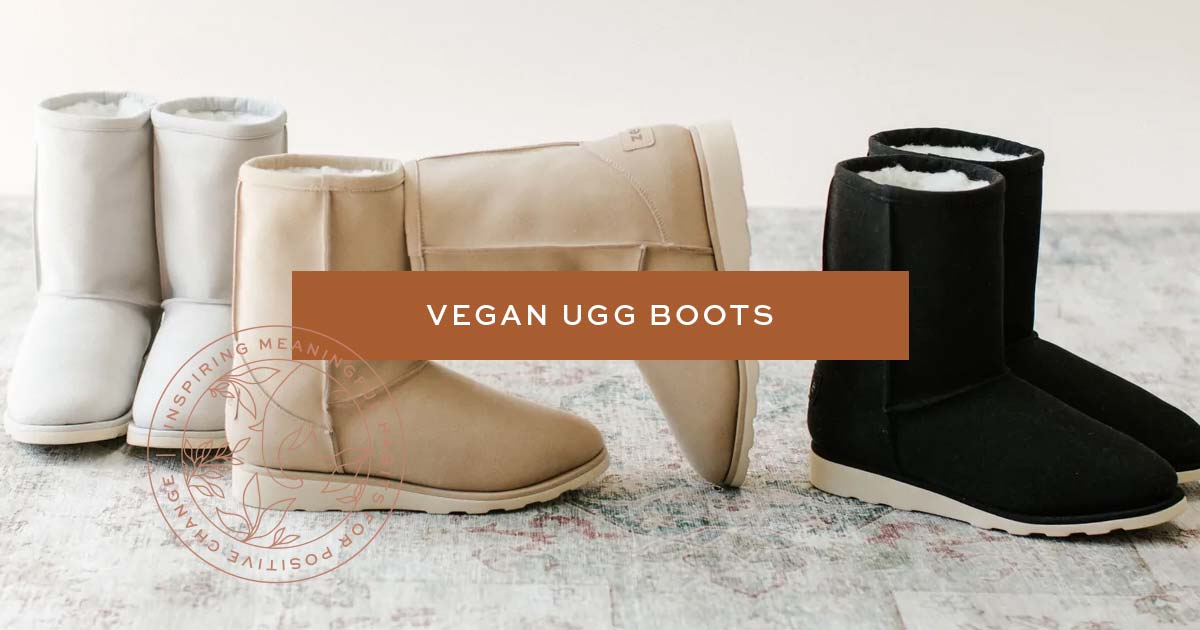In the realm of fashion, few items have sparked as much debate and controversy as UGG boots. Originating from Australia, these sheepskin boots have become synonymous with comfort and casual style. However, beyond their aesthetic allure lies a pressing ethical question: Are UGGs a form of animal cruelty? As we step into 2025, it is imperative to scrutinize the practices behind their production, the definitions of cruelty, and the broader implications of our consumer choices.
At the heart of the controversy surrounding UGGs is the material from which they are crafted—sheepskin. UGGs are predominantly made from the fleece of sheep, a factor that has elicited concern from animal rights advocates. The process of obtaining sheepskin often involves the culling of these animals, raising ethical questions about their treatment during shearing and subsequent slaughter. Critics assert that many sheep endure inhumane conditions, including confinement and neglect, which amplifies the claims of cruelty inherent in the fashion industry.
To further the discussion, it is essential to distinguish between the terms ‘cruelty’ and ‘compromise.’ In the fashion world, where durability and aesthetic appeal reign supreme, compromise often comes at a cost—namely, the welfare of animals. The UGG brand, in particular, has faced scrutiny due to allegations of substandard farming practices in the sourcing of its sheepskin. The question thus becomes: Does the allure of warm, soft boots justify practices that may equate to cruelty?
As we navigate these murky waters, it is crucial to recognize that not all sheepskin is created equal. The industry has seen a burgeoning demand for ethical and sustainable alternatives. A plethora of brands have emerged that prioritize animal welfare, opting for cruelty-free and vegan materials. Such choices not only mitigate the ethical dilemmas but also cater to the growing demographic of conscientious consumers who are mindful of their environmental and ethical footprints.
Moreover, the fascination with UGGs extends beyond their material composition. These boots have transcended mere utilitarian footwear, evolving into a cultural phenomenon over the past two decades. Their comfort and distinctive aesthetic have solidified their place in popular culture, making them a staple for many. This complex interplay of cultural identity, emotional resonance, and ethical consideration forms the crux of the ongoing debate surrounding the boots.
So, what can concerned consumers do in 2025 to make informed choices? Firstly, it is imperative to educate oneself about the origins of the products they purchase. Brands that operate transparently regarding their sourcing practices should be championed, while those that obscure their supply chains warrant skepticism. The advent of digital platforms has enabled consumers to access information at an unprecedented scale, empowering them to make informed purchasing decisions.
Furthermore, supporting organizations and initiatives that advocate for animal rights can amplify individual efforts. Activism takes many forms, from boycotting unethical brands to promoting sustainable alternatives. Together, these actions foster a culture of accountability within the fashion industry, urging brands to reconsider their sourcing practices in light of the ethical implications involved.
In addition to cultivating awareness around individual purchases, there is also a broader discourse regarding the economic pressures that drive brands to prioritize profit over ethics. Fast fashion, for instance, often perpetuates exploitative practices that compromise animal welfare. Recognizing the cyclical nature of consumerism can engender a shift toward more sustainable practices, thereby reducing the tumultuous cycles of cruelty seen in conventional fashion.
While the emotional allure of UGGs makes them a coveted item, the ethical ramifications behind their production cannot be dismissed lightly. The juxtaposition of comfort and cruelty embodies a larger conversation about our responsibility as consumers. Questions surrounding animal welfare compel us to consider the implications of our preferences, shedding light on the interdependent relationship between consumer choices and industry practices.
As we progress further into 2025, assessing the authenticity and integrity of brands becomes paramount. The evolution of the UGG phenomenon symbolizes a microcosm of broader societal values concerning animal rights and ethical consumption. We find ourselves at a crossroads, where the choices we make not only define our wardrobes but also reflect our moral compass in advancing a more compassionate world.
In closing, the discourse surrounding UGGs as potentially cruel products serves as a clarion call for introspection. Amidst the warm embrace of fashion, there lurks the responsibility to ensure that our comforts do not come at the expense of those who cannot advocate for themselves. The future of fashion and animal welfare hangs in the balance, necessitating our active participation in the dialogue. As informed consumers, we hold the power to effect significant change—one choice at a time.








